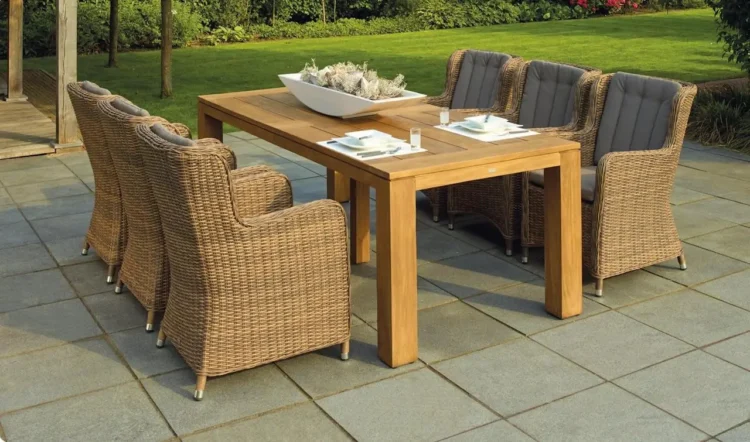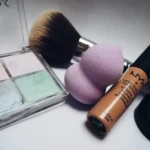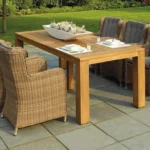Introduction
Getting your garden summer-ready is like prepping for a grand party. You want everything to look perfect and welcoming for those long, lazy days and warm, starry nights. Whether you’re a seasoned gardener or just starting out, making your garden beautiful doesn’t have to break the bank. With a little planning and some savvy shopping, you can transform your outdoor space into a summer paradise.
Planning Your Summer Garden
Assessing Your Space
Before diving into purchases, take a good look at your garden. Note the sunny spots, the shady corners, and the existing plants. Understanding your space helps you make informed decisions about what to plant and where.
Deciding on Plants and Flowers
Consider what you want from your garden. Do you crave a colorful flower bed, a lush vegetable patch, or a serene green retreat? Choose plants that suit your climate and soil type. Mixing perennials and annuals can give you both longevity and seasonal color.
Budgeting for Your Garden Makeover
Setting a Realistic Budget
Start with a budget that won’t stress you out. Factor in plants, soil, tools, and decor. Remember, you don’t have to do everything at once. Spread the expenses over a few months if needed.
Prioritizing Expenses
Identify must-haves versus nice-to-haves. Essential tools and healthy soil should be top priorities. Decorations and fancy furniture can come later.
Essential Gardening Tools
Basic Tools for Beginners
You don’t need a shed full of tools to start. A good shovel, a pair of pruners, a garden fork, and a watering can are plenty to get you going.
Advanced Tools for Enthusiasts
If you’re more experienced or have a larger garden, consider investing in a wheelbarrow, a quality hose with a spray nozzle, and an electric trimmer.
Soil Preparation and Fertilization
Testing and Improving Soil Quality
Healthy soil is the foundation of a great garden. Get a soil test kit to check pH levels and nutrient content. Amend your soil with compost or manure to boost fertility.
Organic vs. Synthetic Fertilizers
Organic fertilizers, like compost and bone meal, are eco-friendly and improve soil health over time. Synthetic options can provide quick results but may harm the soil long-term.
Choosing the Right Plants
Perennials vs. Annuals
Perennials come back year after year, offering long-term value. Annuals provide vibrant color for a single season. A mix of both can keep your garden lively all summer.
Best Plants for Summer Gardens
Sunflowers, marigolds, and zinnias thrive in summer heat. Herbs like basil and rosemary are also great choices, adding both beauty and utility.
Watering Solutions for Hot Months
Efficient Watering Techniques
Water in the early morning or late evening to minimize evaporation. Soaker hoses and drip irrigation systems can conserve water and ensure plants get the moisture they need.
Best Irrigation Systems
Invest in a simple drip irrigation kit or use soaker hoses to water directly at the plant base. These methods are efficient and reduce water waste.
DIY Garden Projects
Building Raised Beds
Raised beds improve drainage and make gardening easier on your back. Use untreated wood or recycled materials to keep costs low.
Creating Garden Paths
Paths add structure and accessibility. Gravel, mulch, or reclaimed bricks can create charming, budget-friendly walkways.
Affordable Garden Decorations
Upcycling and Repurposing
Turn old items into garden treasures. An old ladder can become a plant stand, and tin cans can be transformed into quirky planters.
Budget-Friendly Decor Ideas
Fairy lights, wind chimes, and homemade bird feeders add charm without costing much. Get creative with what you already have.
Pest Control on a Budget
Natural Pest Deterrents
Companion planting, like marigolds with tomatoes, can repel pests naturally. Homemade sprays with garlic or chili can deter insects.
Cost-Effective Pest Control Products
Neem oil and diatomaceous earth are affordable and effective against many common pests. Always follow instructions to avoid harming beneficial insects.
Outdoor Furniture and Seating Areas
DIY Seating Solutions
Pallets can be upcycled into stylish seating with some cushions and a bit of paint. This DIY approach saves money and adds a personal touch.
Affordable Outdoor Furniture Options
Check thrift stores or online marketplaces for budget-friendly finds. Sometimes a coat of paint or new cushions can breathe new life into old furniture.
Lighting Your Garden
Solar-Powered Lights
Solar lights are eco-friendly and cost-effective. They charge during the day and provide a warm glow at night, perfect for summer evenings.
Creating Ambiance with String Lights
String lights are magical and inexpensive. Drape them over trees, along fences, or across your patio to create a cozy atmosphere.
Maintaining Your Garden
Regular Upkeep Tips
Consistent maintenance is key to a thriving garden. Regular weeding, pruning, and deadheading keep your plants healthy and looking their best.
Seasonal Maintenance Tasks
Adjust your care routine with the seasons. In summer, focus on watering and mulching to retain moisture and protect your plants from the heat.
Creating a Kid-Friendly Garden
Safe Plants for Children
Choose non-toxic plants if you have kids. Sunflowers, snapdragons, and strawberries are safe and fun for little ones to grow.
Fun Garden Activities for Kids
Get children involved with simple tasks like planting seeds, watering plants, or creating a fairy garden. It’s educational and keeps them entertained.
Conclusion
Preparing your garden for summer doesn’t have to be expensive or overwhelming. By planning ahead, prioritizing your purchases, and embracing some DIY projects, you can create a beautiful, inviting space for all to enjoy. So, roll up your sleeves, grab your tools, and get ready to bask in the glory of your summer garden!
FAQs
How Can I Start a Garden on a Tight Budget?
Start small and use what you have. Focus on essential tools, choose easy-to-grow plants, and consider DIY projects for decor and furniture.
What Are the Easiest Plants to Grow for Beginners?
Try sunflowers, marigolds, zinnias, and herbs like basil and rosemary. They’re low-maintenance and thrive in summer conditions.
How Often Should I Water My Summer Garden?
Water deeply but less frequently. Early mornings or late evenings are best to minimize evaporation and ensure plants get adequate moisture.
What Are Some Eco-Friendly Gardening Tips?
Use organic fertilizers, compost, mulch to retain moisture, and natural pest deterrents like companion planting. Solar lights can reduce energy use.
How Can I Make My Garden More Attractive at Night?
Install solar-powered lights and string lights. These are cost-effective ways to add ambiance and make your garden a magical place after dark.










Leave Comment